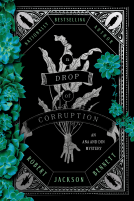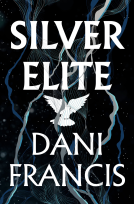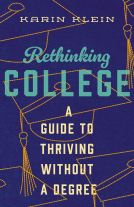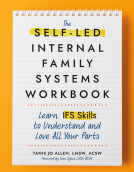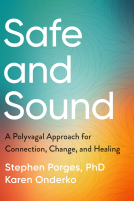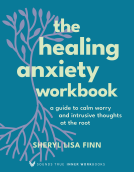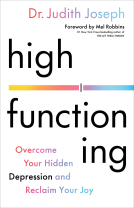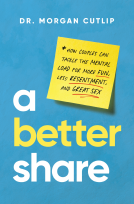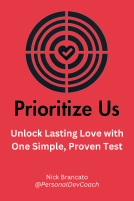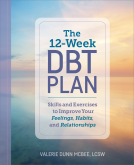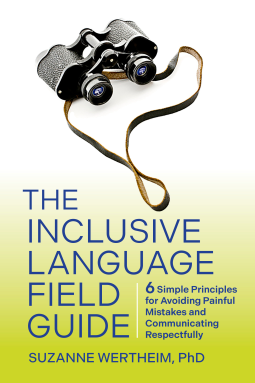
The Inclusive Language Field Guide
6 Simple Principles for Avoiding Painful Mistakes and Communicating Respectfully
by Suzanne Wertheim, PhD
This title was previously available on NetGalley and is now archived.
Send NetGalley books directly to your Kindle or Kindle app
1
To read on a Kindle or Kindle app, please add kindle@netgalley.com as an approved email address to receive files in your Amazon account. Click here for step-by-step instructions.
2
Also find your Kindle email address within your Amazon account, and enter it here.
Pub Date Oct 03 2023 | Archive Date Oct 03 2023
Talking about this book? Use #TheInclusiveLanguageFieldGuide #NetGalley. More hashtag tips!
Description
In today's fast-moving and combative culture, language can feel like a minefield. Terms around gender, disability, race, sexuality and more are constantly evolving. Words that used to be acceptable can now get you “cancelled.” People are afraid of making embarrassing mistakes. Or sounding outdated or out of touch. Or not being as respectful as they intended.
But it’s not as complicated as it might seem. Linguistic anthropologist Suzanne Wertheim offers six easy-to-understand principles to guide any communication—written or spoken—with anyone:
• Reflect reality
• Show respect
• Draw people in
• Incorporate other perspectives
• Prevent erasure
• Recognize pain points
This guide clarifies the challenges—and the solutions—to using "they/them," and demonstrates why "you guys" isn't as inclusive as many people think. If you follow the principles, you'll know not to ask a female coworker with a wedding ring about her husband—because she might be married to a woman. And you'll avoid writing things like "America was discovered in 1492," because that's just when Europeans found it.
Filled with real-world examples, high-impact word substitutions, and exercises that boost new skills, this book builds a foundational toolkit so people can evaluate what is and isn't inclusive language on their own.
Advance Praise
“The ultimate road map to welcoming, including, and honoring everyone we encounter with the power of inclusive language. So stop walking on eggshells around colleagues, ramp up your ILQ (inclusive language intelligence), and start drawing people in instead of making them feel erased.”
—W. Brad Johnson, PhD, Professor, United States Naval Academy, and coauthor of Good Guys
“Suzanne Wertheim’s clear and straightforward book goes beyond flat dos and don’ts. Instead, she gives us the keys to why and how words and phrases we may have grown up using can wound and exclude people we want to welcome.”
—Cindy Cohn, Executive Director, Electronic Frontier Foundation
“Businesses want to be more inclusive, and language is key. This book provides a step-by-step guide anyone can use to harness the power of language and communicate more respectfully.”
—Jonah Berger, Professor, The Wharton School, and bestselling author of Contagious, The Catalyst, and Magic Words
“This is much more than a book on inclusive language. This is a people-leader book. I honestly believe this should be required reading for anyone who has the responsibility of holding authority over others.”
—Cynthia Overton, PhD, Senior Director of Tech Workplace Initiatives, Kapor Center
“A new, important, and genuinely useful resource for human resources professionals. Because your words at work will always matter, it’s never too late to strengthen your relationships with colleagues and clients through inclusive language. This is a must-read!”
—Brandon Wheatley, employment law attorney and HR leader
Available Editions
| EDITION | Other Format |
| ISBN | 9781523004249 |
| PRICE | $21.95 (USD) |
| PAGES | 256 |
Available on NetGalley
Featured Reviews
The Inclusive Language Field Guide is an excellent read for both people new to inclusive language, and those looking to polish their existing skills.
The book flows easily, is very practical, and is written from the perspective of linguistics and anthropology - getting very often into WHY language can be uninclusive, rather than just listing inappropriate words. Language nerds like myself and people looking for rules to live by will certainly appreciate the notions introduced here, along with the 6 best practices (or principles) the author recommends.
There are plenty of practical examples, stories and exercises you can use to work on adding inclusive language into your skill set, as well as an inclusion checklist and a word replacement dictionary.
Well worth the read!
"The Inclusive Language Field Guide" by Suzanne Wertheim provides an indispensable roadmap for navigating the ever-evolving landscape of communication in our dynamic and diverse world. With clear and practical guidance, linguistic anthropologist and business consultant Suzanne Wertheim outlines six fundamental principles that empower individuals to communicate effectively and respectfully in today's intricate linguistic landscape.
By embracing these principles, readers will learn how to reflect reality, show genuine respect, engage others, incorporate diverse perspectives, prevent erasure, and recognize potential pain points. This guide demystifies the challenges surrounding inclusive language, shedding light on the significance of terms like "they/them" and dispelling misconceptions about phrases such as "you guys."
Filled with real-world examples, impactful word substitutions, and skill-enhancing exercises, this book equips readers with a foundational toolkit to independently evaluate and implement inclusive language practices. It transcends mere language guidelines; it's a guide for leaders, empowering them to foster inclusive and respectful communication within their organizations. "The Inclusive Language Field Guide" is a must-read for anyone committed to strengthening relationships through the power of inclusive language, making it an essential resource for HR professionals and leaders alike.
The Inclusive Language Field Guide is a great resource and guide for everyone in an age where gender and sexuality labels are changing from what a lot of us grew up with. This is a very practical and helpful guide on how to approach people in a respectful and non-threatening way. This should be a must-read for everyone. Wonderful resource!
Thanks Netgalley and the publisher for the opportunity to review this advanced review copy (ARC) in exchange for my honest review on the book!
 Bookseller 901546
Bookseller 901546
I really liked this book. As someone very interested in and committed to diversity and inclusion, this book really appealed to me and made me question and challenge myself on how I currently communicate. I know I can do a lot better, and will keep referring to this book on how I can be better.
I will be recommending this book to colleagues who are also striving to be more inclusive in their communication.
I'm sure some people will say this book is "woke" and whatever, but the reality is is that language matters. How we engage with people matters. How we address people matters. It always has. No one likes being called the wrong name. Or even inadvertently made to feel excluded. The way we bring people together can be immensely influenced by how we communicate.
Great book. Well done.
Thanks to the publisher, NetGalley and the author for an eARC. All opinions are my own.
 Clare R, Reviewer
Clare R, Reviewer
"The Inclusive Language Field Guide" by Suzanne Wertheim shows that it doesn’t take much effort to be inclusive in your language, and demonstrates the best practices to ensure you are not inadvertently causing pain to someone with your word choices or actions.
The book covers more than pronouns, including unconscious demoting, how to deal with ‘difficult’ names and how to comfortably address a person with a disability. The use of examples were particularly helpful and painted a picture that I couldn't get out of my mind.
This book is so needed. It deserves to be on the compulsory reading lists for teaching colleges and medical schools. I have learned a lot from this book that I can put into practice to help me consider the needs of people I come into contact with, making them feel comfortable and welcomed. Thank you to the publisher and author for access to an advanced digital copy. All opinions are my own.
 Lizabeth R, Media/Journalist
Lizabeth R, Media/Journalist
This is the book that communications professionals need to navigate the ever changing field of communications involving diversity and inclusion — always based on respect. It’s a thorough examination of best practices and pitfalls with suggested ways to practice the material you’ve learned at the end of each chapter. Highly recommend for young and more experienced communications professionals alike!
Readers who liked this book also liked:
Tanis Allen, LMSW, ACSW
Health, Mind & Body, Self-Help
Sheryl Lisa Finn, MA; Sheryl Paul
Health, Mind & Body, Science, Self-Help
